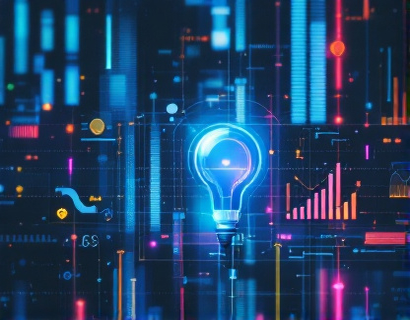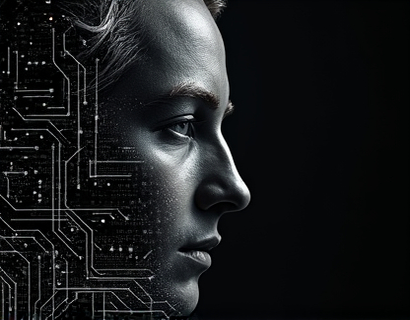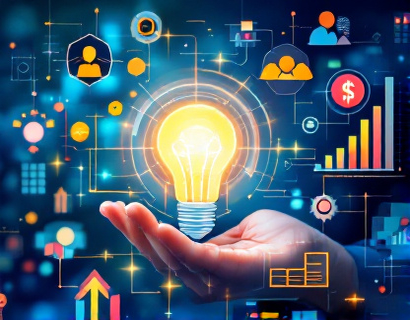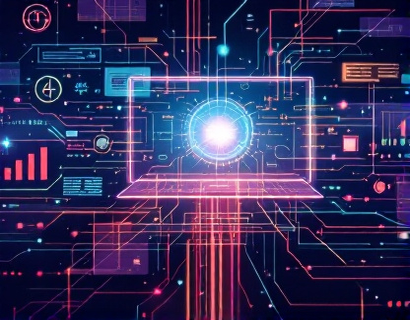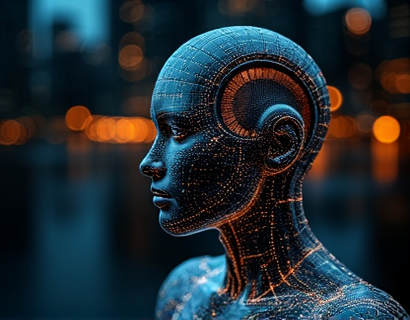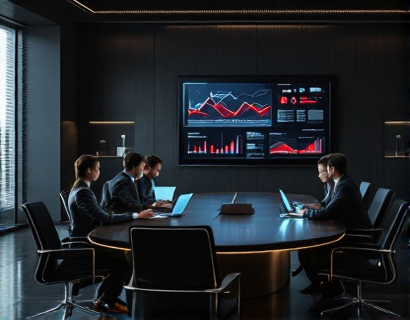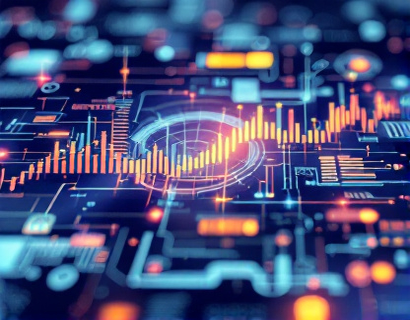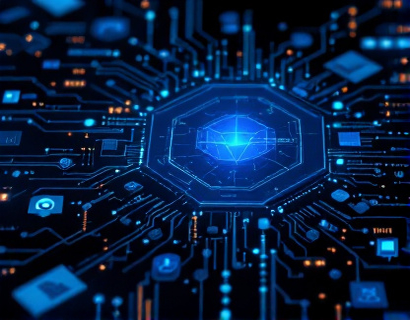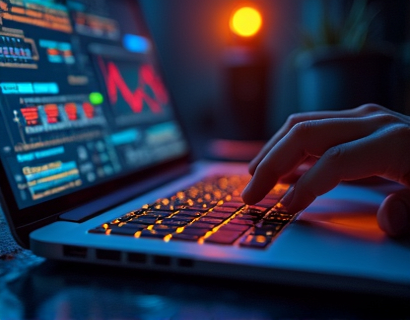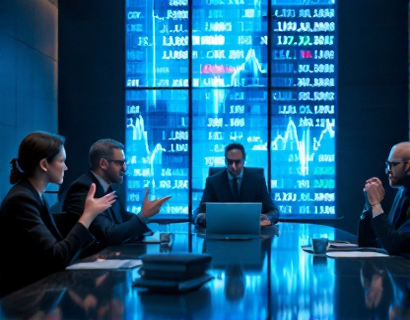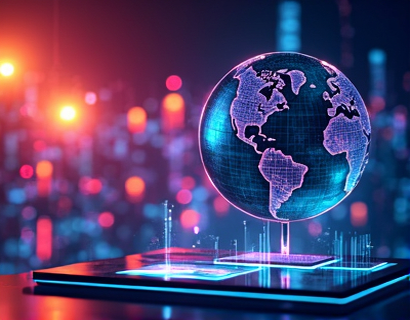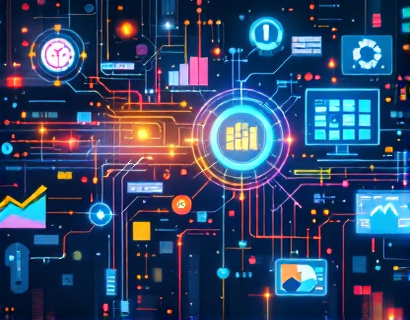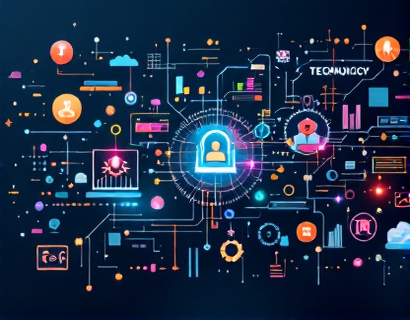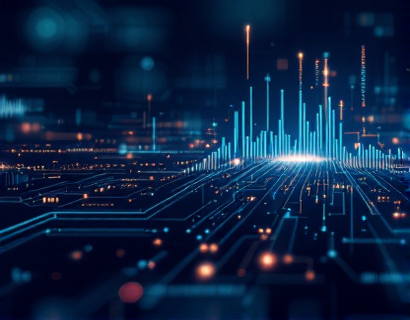Crypto AI Synergy: Elevating Digital Transformation with Blockchain and Machine Learning
The intersection of cryptocurrency and artificial intelligence (AI) is redefining the landscape of digital transformation. This synergy, often referred to as Crypto AI, is creating unprecedented opportunities for tech leaders to enhance user experiences and stay ahead in the rapidly evolving blockchain era. This article delves into the transformative impact of merging these two powerful technologies, offering a comprehensive guide for tech leaders and innovators seeking to leverage the next generation of digital tools for a seamless future.
The blockchain revolution has already disrupted traditional industries by providing a decentralized, secure, and transparent way to conduct transactions and manage data. However, the true potential of blockchain is being unlocked through the integration of AI. AI's ability to process vast amounts of data, learn from patterns, and make predictions is complementing blockchain's strengths in security and transparency. This combination is paving the way for enhanced user experiences, more efficient operations, and innovative applications across various sectors.
Understanding the Basics of Blockchain and AI
To fully appreciate the synergy between blockchain and AI, it's essential to understand the fundamentals of each technology. Blockchain is a distributed ledger technology that records transactions across multiple computers in such a way that the registered transactions cannot be altered retroactively. This makes it highly secure and resistant to tampering. Blockchain's decentralized nature eliminates the need for intermediaries, reducing costs and increasing efficiency.
AI, on the other hand, encompasses a range of technologies including machine learning, natural language processing, and computer vision. Machine learning, a subset of AI, involves algorithms that can learn from and make predictions based on data. When applied to blockchain, AI can analyze transaction patterns, detect anomalies, and optimize network performance. The integration of these technologies creates a powerful toolset for building robust and intelligent systems.
Enhancing Security with AI-Driven Blockchain Solutions
One of the most significant benefits of combining blockchain and AI is the enhancement of security measures. Traditional security protocols can be vulnerable to sophisticated attacks, but AI can significantly bolster blockchain's defenses. AI algorithms can monitor blockchain networks in real-time, identifying and responding to potential threats with unprecedented speed and accuracy.
For instance, AI can detect unusual transaction patterns that may indicate fraudulent activity or network attacks. By analyzing historical data, AI can predict and prevent such incidents before they occur. This proactive approach to security is crucial in maintaining the integrity and trustworthiness of blockchain-based systems. Moreover, AI can help in managing smart contracts by ensuring they are executed correctly and efficiently, reducing the risk of errors and disputes.
Optimizing Blockchain Performance with Machine Learning
Blockchain networks, especially those using proof-of-work consensus mechanisms, can face scalability and efficiency challenges. The computational power required to validate transactions and maintain the blockchain can lead to high energy consumption and slower transaction times. AI can play a pivotal role in optimizing these processes.
Machine learning algorithms can analyze network data to identify bottlenecks and suggest improvements. For example, AI can optimize the placement of nodes, manage resource allocation, and even predict maintenance needs. By automating these tasks, AI helps in maintaining a smooth and efficient blockchain operation. Additionally, AI can enhance the development of more efficient consensus mechanisms, reducing the computational load and energy consumption while maintaining security and decentralization.
Personalized User Experiences through AI-Powered Blockchain Applications
The synergy of blockchain and AI is not only about backend improvements but also about creating personalized and seamless user experiences. AI-driven analytics can provide deep insights into user behavior and preferences, enabling the development of tailored applications and services. In the context of blockchain, this means creating user-centric platforms that offer personalized experiences while maintaining the benefits of decentralization and security.
For example, in the finance sector, AI-powered blockchain applications can offer customized investment advice, risk assessment, and portfolio management. These applications can leverage blockchain for secure and transparent transactions, while AI ensures that the recommendations are based on the user's specific needs and market conditions. This level of personalization enhances user satisfaction and engagement, driving adoption and loyalty.
Supply Chain Transparency and Efficiency
Supply chain management is another area where the combination of blockchain and AI can drive significant improvements. Blockchain provides a transparent and immutable record of transactions, ensuring traceability and accountability. AI can further enhance this by analyzing supply chain data to identify inefficiencies, predict disruptions, and optimize logistics.
AI algorithms can process vast amounts of data from various sources, including sensors and IoT devices, to monitor the movement of goods in real-time. This data can be used to optimize inventory levels, reduce lead times, and minimize costs. Additionally, AI can help in verifying the authenticity and quality of products, ensuring that only genuine items reach the end consumer. This level of transparency and efficiency is crucial for building trust and reliability in global supply chains.
Smart Cities and IoT Integration
The integration of blockchain and AI is also transforming urban environments through the development of smart cities. Blockchain can secure and manage the vast amounts of data generated by IoT devices, ensuring privacy and security. AI can process this data to optimize city operations, from traffic management to energy distribution.
For instance, AI-powered blockchain platforms can manage smart grids, balancing energy supply and demand in real-time. By analyzing usage patterns and predicting peak times, AI can adjust energy distribution to prevent outages and reduce waste. Similarly, blockchain can ensure that data from IoT devices is tamper-proof, enhancing the reliability of smart city systems. This synergy is essential for creating sustainable, efficient, and livable urban environments.
Challenges and Considerations
While the potential of Crypto AI is vast, there are several challenges and considerations that tech leaders must address. One of the primary concerns is the regulatory landscape. The intersection of cryptocurrency and AI operates in a complex legal environment, with varying regulations across jurisdictions. Tech leaders must stay informed about regulatory changes and ensure compliance to avoid legal issues.
Another challenge is the technical complexity of integrating blockchain and AI. Developing robust and scalable solutions requires expertise in both domains. Organizations need to invest in skilled personnel and advanced infrastructure to harness the full potential of Crypto AI. Additionally, there is a need for standardization to ensure interoperability and ease of adoption.
Future Trends and Innovations
Looking ahead, the future of Crypto AI is promising, with several emerging trends and innovations on the horizon. One such trend is the development of decentralized AI platforms that leverage blockchain for data sharing and model training. These platforms can democratize access to AI resources, enabling smaller organizations and individuals to participate in the AI revolution.
Another exciting area is the integration of blockchain with edge computing and 5G networks. This combination can enable real-time AI processing at the edge, reducing latency and enhancing the performance of blockchain applications. Additionally, the rise of non-fungible tokens (NFTs) and decentralized finance (DeFi) is creating new opportunities for innovation, with AI playing a crucial role in managing and optimizing these decentralized systems.
As the technology matures, we can expect to see more sophisticated applications that combine the strengths of blockchain and AI. From enhanced cybersecurity to advanced data analytics, the synergy between these technologies will continue to drive digital transformation and create new possibilities for tech leaders and users alike.




